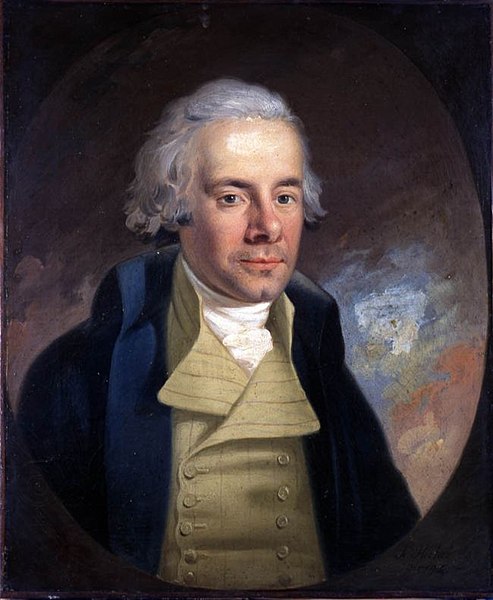William Wilberforce was a British politician, a philanthropist, and a leader of the movement to abolish the slave trade. A native of Kingston upon Hull, Yorkshire, he began his political career in 1780, and became an independent Member of Parliament (MP) for Yorkshire (1784–1812). In 1785, he underwent a conversion experience and became an Evangelical Anglican, which resulted in major changes to his lifestyle and a lifelong concern for reform.
William Wilberforce by Karl Anton Hickel, c. 1794
A statue of William Wilberforce outside Wilberforce House, his birthplace in Hull
William Wilberforce by John Rising, 1790, pictured at the age of 30
Diagram of a slave ship, the Brookes, illustrating how slaves were transported
Philanthropy is a form of altruism that consists of "private initiatives for the public good, focusing on quality of life". Philanthropy contrasts with business initiatives, which are private initiatives for private good, focusing on material gain; and with government endeavors that are public initiatives for public good, such as those that focus on the provision of public services. A person who practices philanthropy is a philanthropist.
Herodes Atticus, a Greek philanthropist of Ancient Rome active during the 2nd century CE
The Foundling Hospital in London, c. 1753. The original building has since been demolished.
William Wilberforce, a prominent British philanthropist and anti-slavery campaigner
The Red Cross, after the Battle of Gravelotte in 1870







